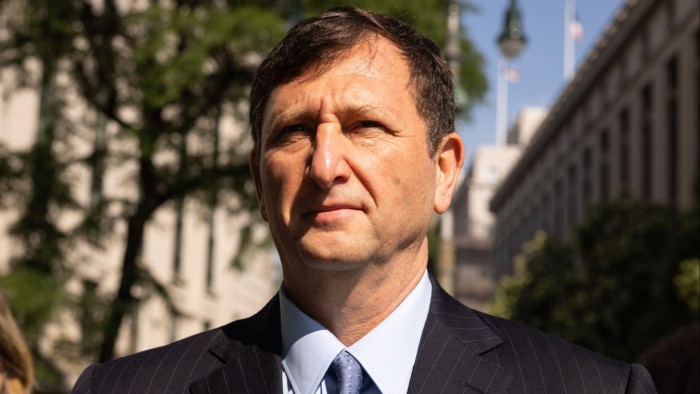Unlock the Editor’s Digest for free
Alex Mashinsky, the founder of collapsed cryptocurrency lender Celsius Network, pleaded guilty Tuesday in a criminal case, alleging that he misled investors about the company’s financial condition and used customer funds to increase the value of a digital token that it to manipulate.
“I know what I did was wrong and I want to do what I can to make it right,” Mashinsky, 59, told Judge John Koeltl during the hours-long hearing in Manhattan federal court. “I accept full responsibility for my actions.”
In an agreement with prosecutors, he pleaded guilty to one count of commodities fraud and one count of securities fraud.
The two charges carry a combined maximum penalty of 30 years in prison, and Mashinsky has also agreed to forfeit $48 million. The verdict was set for April 8.
Damian Williams, the U.S. attorney in Manhattan, said Tuesday that Mashinsky “orchestrated one of the largest frauds in the crypto industry,” luring “ordinary retail crypto investors into investing billions of dollars in Celsius with false promises that their investments involve low risk. .”
New Jersey-based Celsius launched in 2017 to accept deposits of cryptocurrencies, pay interest and provide loans to users who had pledged their deposits as collateral. The company paid premium interest rates to savers and charged little for loans tied to the value of digital currencies.
At its peak, it said it had $25 billion in assets, with a large client base of retail investors. But it abruptly blocked customer withdrawals in June 2022 after a rout in global crypto markets prompted waves of refund requests. The following month it filed for bankruptcy, revealing a $1 billion deficit.
Mashinsky, a colorful figure who built a cult following by preaching the virtues of crypto to break the grip of big banks, initially pleaded not guilty to charges brought by prosecutors at the U.S. attorney’s office in Manhattan a year after the Celsius went bankrupt.
Prosecutors accused him of using customers’ money to prop up the market for Celsius’s digital token, CEL, allowing it to sell its own assets at falsely inflated values. Mashinsky is said to have personally reaped $42 million in proceeds from the sale of CEL, while claiming he continued to own it and encouraged investors to do so.
Prosecutors cited a private message exchange between Mashinksy and Roni Cohen-Pavon, Celsius’ chief revenue officer, in which Cohen-Pavon wrote, “The problem is people are selling CEL and no one is buying but us,” adding, “the value was fake.” and the company was spending $8 million a week to keep it afloat.
In addition to selling cryptocurrency, Mashinksy was also accused of siphoning $8 million of its own digital coin assets from Celsius, while assuring customers that the group had sufficient liquidity to meet repayment demands.
Cohen-Pavon was also charged in the case and pleaded guilty last year. Celsius, which was under the control of a restructuring team, entered into a non-prosecution agreement and agreed to cooperate with the investigation. Attorneys for Cohen-Pavon and Celsius did not respond to requests for comment.
